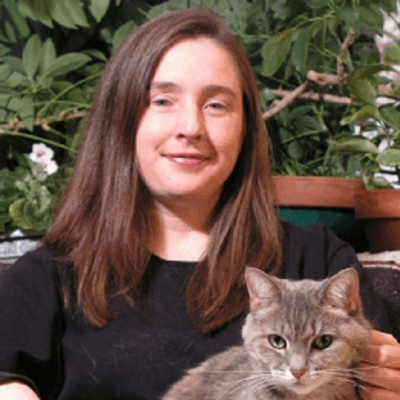
The Palgrave Handbook of Animals and Literature is the latest publication by Susan McHugh, PhD, Professor of English. Co-edited with two colleagues at the University of Sheffield, UK, the book is designed to provide a comprehensive introduction to current research in literary animal studies, featuring 42 chapters whose authors include established leaders along with rising stars in the field: Currently in press, it has already received ringing endorsements from leading scholars around the world.
Maud Ellmann, PhD, Randy L. and Melvin R. Berlin Professor of the Development of the Novel in English at the University of Chicago, describes the book as “An invaluable guide to the theory and practice of literary animal studies,” primarily because it “opens up new ways of reading by dismantling anthropocentric prejudices.”
“This volume is far more than a handbook on Literary Animal Studies,” notes Virginia Richter, PhD, Professor and Chair of Modern English Literature at the University of Bern, Switzerland. “Ranging from Medieval beast fables to contemporary ‘ossiferous’ fictions, this collection is an inspiring must-read for everyone interested in literary animals, human and non-human alike.”
Cary Wolfe, PhD, Bruce and Elizabeth Dunlevie Professor of English at Rice University, elaborates that the book’s wider-ranging appeals stem from the contributors’ rigorous engagements with leading-edge academic discussions: “this remarkable—and remarkably diverse—collection models the rich diversity of how ‘the question of the animal’ has been taken up by leading figures in Animal Studies,” concluding that “any scholar, working in any period, will have much to learn here—and much to applaud—for years to come.”
Concurring that it is“a ‘must read’ for those in the fields of Animal Studies, Literary History and Criticism,” Helen Tiffin, PhD, Professor of English at the University of Wollongong, Australia, points to its immediate relevance outside academics as well. The book’s “shifting focus, from the human to the extra-human, also takes us, as a number of the essays do, into the realms of imperialism, race, and gender. Innovative, comprehensive, and enlightening, it offers much not only to scholars, but to general readers interested in the urgent questions of our times.”
Shefali Rajamannar, PhD, Associate Professor of Writing at the University of Southern California, foresees the project’s transformative impact on Literary Studies as well: The editors have assembled an invaluable reference that includes a tantalizing array of approaches such as provocative zoocentric genealogies of humanism, insightful new readings of canonical authors, and essays about the current mass extinction crisis and multispecies approaches to medical humanities that pave the way to new directions in the discipline.”McHugh is the author of three scholarly monographs, most recently, Love in a Time of Slaughters: Human-animal Stories Against Genocide and Extinction (2019). She is co-editor of three additional scholarly collections as well as the book series Palgrave Studies in Animals in Literature, which has published over 20 volumes since its inception in 2015.
